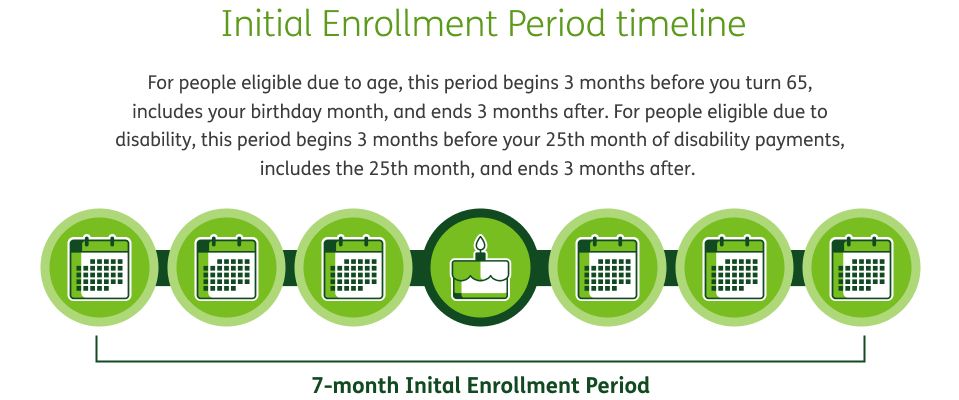If you miss your 7-month Initial Enrollment Period, you have another chance to sign up for Original Medicare.4
General Enrollment Period (GEP)
If you miss your chance to apply for Original Medicare during your IEP, or you weren’t automatically enrolled, the Medicare General Enrollment Period is your chance to sign up for Medicare Part A and Part B.
Dates: Jan. 1–March 31
During the General Enrollment Period, you can:
- Sign up for Medicare Part A and Part B
Additional information:
- Coverage will start on July 1
- You may have to pay a late enrollment penalty
Special Enrollment Period (SEP)
A Special Enrollment Period sign up for Part A (if you have to buy it) and Part B once your IEP ends, but only if you meet certain requirements.5
When do you qualify for a special enrollment period to sign up for Parts A and B?
If you’re covered under a group health plan based on current employment, you have a SEP to sign up for Part A and/or Part B at any time as long as you or your spouse (or family member if you’re disabled) is working, and you’re covered by a group health plan through the employer or union based on that work.
Additional information:
If you enroll during a Special Enrollment Period, your Medicare coverage typically begins the month after Social Security gets your completed request. Usually, you don’t pay a Part B late enrollment penalty if you sign up during a Special Enrollment Period.




